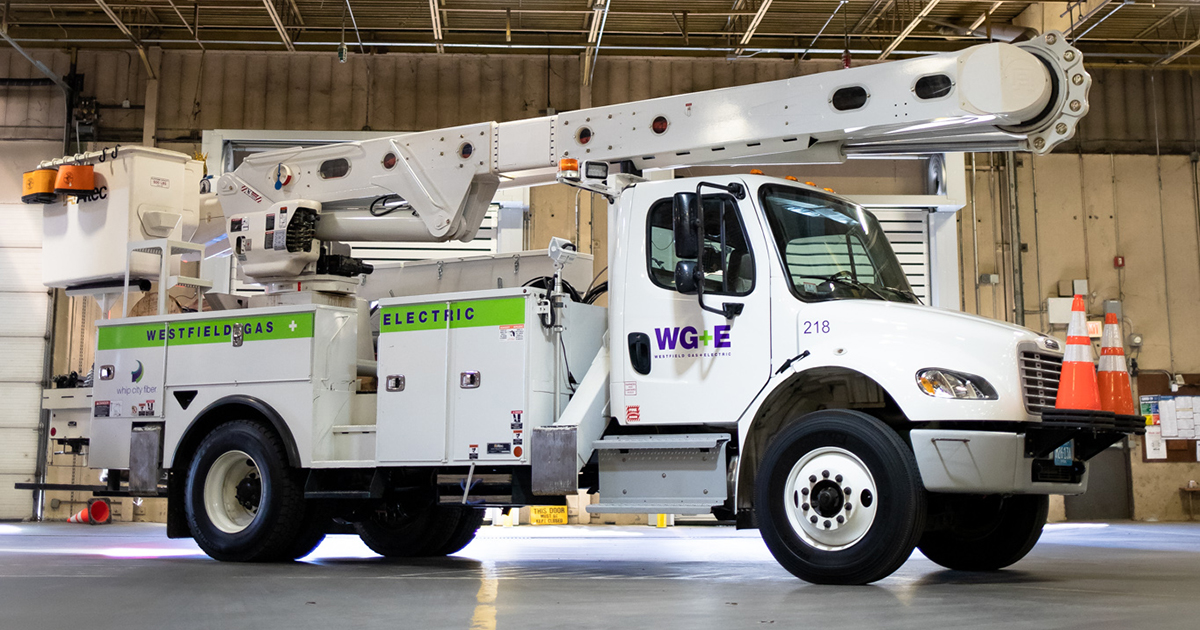With the inconsistent weather patterns in Western Mass over the past few months, Westfield Gas + Electric (WG+E) customers can expect to see their utility bills rise and fall accordingly. The temperatures have been alternating between cold and warm, which puts utility companies in the position of constantly planning for the unknown.
December 2022 was more than 8% colder than December 2021, including a significant cold snap over the Christmas weekend, which resulted in higher usage on customer bills received in January. The New England electric grid was on the verge of rolling blackouts on December 24th with unanticipated higher demand and not enough generation available.
On the flip side, most Westfield Gas + Electric customers can expect to see lower usage on the bills received in February after one of the warmest January months in the Northeast in over 40 years although the cost of electricity and natural gas was significantly higher than in 2022.
This past weekend, we had severe cold for two days that saw the price for natural gas swing to as high as $200 per MMBTU on the daily market, from just $3 per MMBTU the week prior.
WG+E’s Energy Supply team makes careful decisions every day to keep the rates stable and sustainable. “As a locally owned utility, we have more flexibility when purchasing power and natural gas than investor-owned utilities. We can be more responsive to weather and make strategic purchase decisions which have consistently kept the rates here for natural gas and electricity below the state average.” says Tom Flaherty, Sr., General Manager of Westfield Gas + Electric. “WG+E cares about our customers and works every day to protect our rates, and to safely provide reliable service.”
The City of Westfield and Westfield Gas + Electric continue to provide support. If you need extra assistance with your energy costs this winter, in January 2023, the City of Westfield contributed a total of $300,000 to the Valley Opportunity Council, Inc., providing opportunities for additional Westfield households to qualify for the heating assistance program. Under the new guidelines, a family of four with a household income of $75,000 and below would qualify. Customers can apply online or call VOC at 413-552-1548 to schedule an appointment. The deadline to apply is April 30, 2023. For general questions about VOC and other assistance options, please call WG+E at 413-572-0100.
Using energy wisely can always help customers save money on their monthly bills. Simple things like covering drafty windows, setting the thermostat to the lowest comfortable temperature, and maintaining your home heating system can go a long way. WG+E recommends a free home energy assessment to maximize savings all year long. Customers should call 1-844-403-7960 to schedule an appointment.
**Why are prices so high?
**The past two years not only brought us a global pandemic, but also the most volatile energy markets that the Northeast has ever experienced. Natural gas has become a global commodity, and the United States is a major player in the exporting of Liquified Natural Gas (LNG) throughout the world. The war between Russia and the Ukraine has made this commodity part of its strategy by cutting off pipeline supplies to parts of Europe, thus driving supply constraints, increasing demand and rapidly elevating prices throughout the world, especially in the northeastern United States. This volatility is expected to continue in future winters and affects the cost of utility bills for customers in Westfield.
There is very limited supply of natural gas in the northeastern United States. We rely heavily on LNG for winter reliability for both heating and electricity generation. Over the past 25 years natural gas for electric generation has become the go-to fuel to move away from coal and oil, however the need for expanded pipeline capacity for natural gas has been met with pressure to move to renewable sources for power generation. A law is in place for Massachusetts to have 50% non-emitting electric generation by 2030, and 100% non-emitting electric generation by 2050.
Massachusetts has taken the lead in trying to import hydro power from Canada but has met resistance from New Hampshire and Maine conservationists with concerns about the impact of electric transmission lines. Although this project is meant to help Massachusetts meet its progressive goals for decarbonization, it would also support system reliability in all New England. Massachusetts has announced major offshore wind projects to come online beginning in 2024, but these have been moved back due to multiple appeals from environmental organizations, cost increases through rapid inflation, and supply chain delivery issues.


